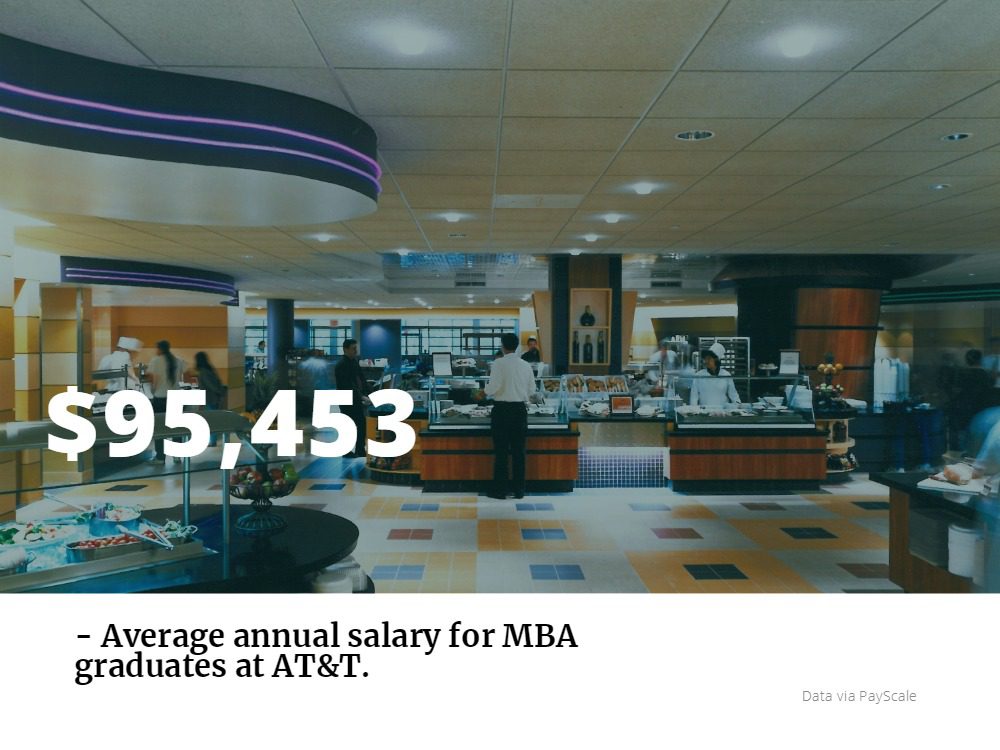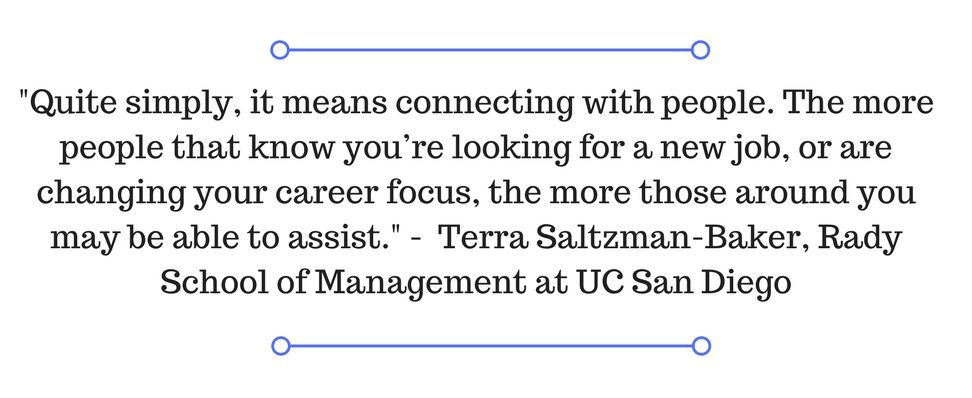The Big Payback: The Highest Paying Jobs for MBAs

Even in 2019, the search for the right MBA program is as unique as each student, and the reasons for applying are as varied as the programs themselves. Advancement in an existing career is an obvious motivation, as is breaking into a new industry or shifting one’s career focus.
One thing that all MBAs can likely agree with, however, is that earning potential is a leading incentive. This brings up questions about the most lucrative fields. Choosing the right concentration can be the first step toward achieving a position that will truly pay off. The following is a look at the current highest paying jobs for MBAs, as well as the majors that can open the necessary doors.
The Highest Paying Jobs for MBAs

Topping the list of the highest paid professions for MBAs in 2018 is strategic management. This specialization leads the way in terms of early to mid career salary, with salary averages beginning at around $125,000. Professionals with this degree and concentration earned $148,000 at the mid-point of their careers. Among the career functions for MBAs with a strategy focus are management consultant, senior strategy manager, senior product manager. Google, Amazon, PwC, and Intel are among the companies hiring for strategic management based positions.

Second on the list of highest paying MBA careers is technology management, which for many grows out of a background in IT or software development. According to Monster.com, tech management careers can start at around $113,000 per year, and advancement leads to a jump to upwards of $165,000. Roles such as senior project manager, vice president of IT, and IT director all emerge from a tech background. Companies such as Accenture, Deloitte, Cisco Systems, and HP all offer leading starting salaries in the IT management field.

Entrepreneurship also falls into the top three earning fields for MBAs. Starting salaries, according to data gathered from PayScale, hover around $100,000 per year, and reach up to around $135,000. Such roles as senior project manager and management consultant are options in the entrepreneurial field, as are various leadership roles in the growing fintech industry. Top hiring companies for entrepreneurship MBAs, according to PayScale, are Amazon, IBM, General Electric, and the Boeing Company.

A career in finance is the fourth of the highest paying categories for MBAs, with a starting salary hovering in the $100,000 range. Those with their sights upon chief financial officer, portfolio management, or financial management positions can hope to land jobs in this arena with high earning power. New York Life Insurance, Fidelity Investments, and Vanguard are currently seeking MBAs for various finance positions.

Along with strategy, tech management, entrepreneurship, and finance, marketing ranks among the most lucrative fields for MBAs. While some marketing jobs do not require an MBA, one can see a wider, more profitable range of options with a specialized study in marketing. Upper level marketing positions can start at around $80,000 per year, and can grow well above $120,000. Current listings for MBAs with a marketing focus include Dell, Microsoft, and, of course, Amazon.
Top MBA Recruiters – ESPN

When researching MBA programs, the inevitable questions will arise; what will I do with my degree? What will potential employers recognize about my background aside from grades and standardized test scores? Will my extracurricular resume benefit me in the future? The pursuit of a sports management MBA may help to answer these questions. As sports transforms into a multi-billion dollar industry, b-school students are well-positioned to pursue these emerging careers. The George Washington University Business School, Degroote School of Business at McMaster University, and UCLA Anderson School of Management are several of many nationwide programs offering a sports management MBA. And there may be no bigger sports destination, than Bristol, CT landmark ESPN.
Top MBA Recruiters: Fidelity Investments

When deciding to earn an MBA, you may have a lot of expectations. Whether you are more excited to build a professional network, gain industry-specific training, or develop leadership skills that can take your career to the next level, MBAs can certainly all agree on one thing they hope to get from their program: a job.
MBA graduates can feel more confident entering the job market knowing that top companies throughout the world are looking to recruit talent like them. To help find the perfect fit, MBAs might consider looking at employment reports from their school and other MBA programs around the world. This can help reveal some of the top companies in the country that are actively looking to recruit MBA talent to join the company.
One familiar company is Fidelity Investments, a multinational financial services with its headquarters in Boston, Massachusetts. Fidelity consistently makes the list of companies hiring MBA grads from some of the best business schools in the country, such as MIT’s Sloan School of Management. Originally founded in 1946, Fidelity today is the fourth largest asset manager in the world, with $2.4 trillion in assets.
Knowing that, how can you find Fidelity jobs that are right for you?
What is a Fidelity Career Like for MBAs?
Fidelity’s slogan is ‘blaze your own trail’, which probably explains why ambitious MBAs fit in well at the company. The company offers a number of ways for MBA grads to do so, whether through internships or full-time development programs. Whether graduates are interested technology, finance, investment, or business strategy, there are a variety of Fidelity jobs open for MBAs and MBA graduates.
Fidelity not only encourages their employees to blaze their “own trail,” but aims to create the perfect environment in which to do so. MBAs might be pleased to know the company has been recognized among the “50 Happiest Companies” by Career Bliss in 2018, and in 2017 it was recognized by the National Business Group on Health as one of the “Best Employers for Healthy Lifestyles,” and a “Best of the Best” by the National Business Inclusion Consortium.
Among the other benefits of working in a diverse and happy workplace like Fidelity, the average salary for employees with an MBA degree is $89,271, according to Payscale data. This can vary depending on the specific career path of each MBA, the highest being MBAs in Global Business Management, who make an average salary of $93,000 per year.

Several of the most prominent business schools in the country offer valuable Global Business Management MBA degree. Of which, include:
- The McDonough School of Business at Georgetown University
- The Fox School of Business at Temple University
- The Foster School of Business at the University of Washington (EMBA)
Starting the Fidelity Jobs Search
Fidelity demonstrates a commitment to hiring MBAs through an active recruitment program. The program includes Coffee Chats and Campus Presentations at business schools throughout the country. These visits give current students the chance to meet those currently doing the work that MBAs would likely do at the company, including Research Analysts, Directors of Research, and Portfolio Managers.
MBAs starting at Fidelity typically have two main career paths they will follow. Some may develop into a Portfolio Manager. Others may become a Career Sector Analyst. First round interviews typically occur on-campus, but special arrangements are made for students not on Fidelity’s campus recruitment schedule.
At Fidelity International, the company’s international investment subsidiary, there are additional opportunities for current MBAs to join the company as summer interns. The Equity Research Analyst Summer Internship is an 8-12 week global internship with opportunities in the UK, Hong Kong, Australia, Japan, Korea, Singapore, India, and China.
What Does Fidelity Look For in MBA Candidates?
When hiring MBAs for internships and development programs, Fidelity may have different needs and requirements for applicants depending on the specific field and career they seek. Hard skills tailored to your field of interest are necessary, however. Fidelity also looks for candidates with important soft skills like initiative, ambition, the ability to think independently, and keep cool under pressure.
Interested students can begin searching for Fidelity jobs on the official company website. Applicants should keep in mind the different opportunities available for those currently in an MBA program, near completion, and post-graduation.
Top MBA Recruiters: AT&T

Finding employment after graduating from an MBA program can be a challenge for some. Thankfully, new MBAs are never alone in the process. From companies that actively recruit talent from business schools throughout the country, to MBA programs themselves helping to facilitate interviews and job referrals for their students, students should be sure to take advantage of resources available to them.
A look at 2017 employment data from a top MBA program like the University of Chicago’s Booth School of Business reveals the overwhelming trend: a whopping 89.2 percent of students found employment through university-facilitated avenues, be it on-campus recruitment and interviews, networking events, or through a Booth-facilitated summer employer. The success of campus recruitment benefits everyone, not only because universities are willing to open their doors and advocate for their students, but because top companies go out of their way to recruit young talent and create opportunities for them.
One such company is American multinational telecommunications holding company, AT&T. Founded in 1983 as the Southwestern Bell Telephone Company—part of the Bell Telephone Company with roots in the late 19th century—today AT&T has more than 254,000 employees worldwide and $190 billion in revenue. With a commitment to MBA graduates through internships and early career development programs, AT&T makes the grade as a top recruiter and employment destination for MBAs.
What Is An AT&T Career Like for MBAs?
It should be no surprise that MBAs love working at AT&T when you know the kind of investment this company makes in the educational development of its employees. In 2016, AT&T spent $250 million on employee training and invested roughly 20 million hours into the process. With so many opportunities for ambitious team members to accelerate their careers through leadership and development programs, this is the perfect company for those looking to quickly rise into leadership roles.
AT&T has been awarded many times for its workplace culture, including being named on Fortune‘s ‘100 Best Companies to Work for in 2018‘ and 3rd overall on the Diversity Inc. list of the ‘Top 50 Companies for Diversity‘ in 2018.
Of course, it pays to have an AT&T career, even beyond a positive workplace culture. According to PayScale data, MBA graduates at AT&T earn an average annual salary over $95,000. This can range as high as $142,000 for those in operations management. Employees, including interns, are rewarded with competitive compensation and benefits, including paid holidays, time off, and discounts for AT&T products.

Getting Started
MBA students interested in starting an AT&T career should keep an eye out for the various recruitment events set up through their university, where they can apply on campus and may be selected to interview with college recruiting managers. Because of the company’s heavy investment in a diverse workforce, AT&T also has a strong presence at recruitment conferences like the Forté Foundation for female business leaders, Reaching Out MBA for LGBT candidates, and the National Black MBA Association (NBMBAA).
Many MBAs start their AT&T career through its many internship opportunities, which are found at locations throughout the country and typically last 10-12 weeks. AT&T offers these paid internships a huge variety of fields, such as data analytics, cybersecurity, entertainment group technology, software development, and leadership, among others.
In addition to internships, MBA graduates may apply for one of the many AT&T career development programs. These are full-time, paid rotational programs that may last anywhere from two to three years, providing hands-on experience, exposure and opportunity. Development programs at AT&T include:
- B2B Sales
- Cybersecurity Development
- Engineering and Operations Development
- Finance Leadership Development
- Leadership Development
- Software Development
What Does AT&T Look for in MBA Candidates?
When hiring for its MBA internships and development programs, AT&T looks for students with at least three years of professional experience with the ability to collaborate on complex issues and thrive in a leadership role. The company seeks candidates who are passionate about the role technology can play in people’s lives and its capacity to transform.
In addition to the internships and early career programs, AT&T also looks for more experienced MBA holders for higher-level executive and management positions. For these roles, the company seeks candidates with at least five to eight years in experience related to the role with the ability to work in a team, be a self-starter, and think critically.
Morgan Stanley Still Loves MBAs and the Feeling Is Mutual

Though interest in finance and accounting careers may be decreasing, gaining a job at an investment banks such as J.P. Morgan Chase, Goldman Sachs, and Morgan Stanley is still attractive for many MBA graduates. In 2018, a career in finance is the third most sought-after industry, according to a recent Graduate Management Admission Council (GMAC) study. Part of that reasoning is due to the high annual base salary ($115,000), which is this third highest, only behind general management ($125,000) and IT/MIS ($120,000).
So, what does it look like to work for a company such as Morgan Stanley as an MBA graduate? Is it your golden ticket to the future in 2018? We’re taking an inside look. Continue reading…
Use These Key MBA Networking Strategies Before and After Graduation

In a competitive job market, current MBA students and recent graduates need to figure out how to stand out among their peers and make themselves attractive to potential employers. One of the most fundamental ways MBAs can maximize employment prospects, is to improve their networking skills.
Networking may be more than just a good employment strategy—it is actually a vital tool. According to Mark Brostoff, Assistant Dean and Director of Graduate Career Services at USC Marshall, “A successful job search begins and ends with successful networking. Networking should be one of the primary job search tools when pursuing a career,” he told MetroMBA.
With the advent of social media, networking is now an everyday part of our lives. Your internet presence is now a huge part of your job search. Brostoff highlights the unique value of maintaining the right kind of web profile: “Networking these days are [sic] both personal, as well as online, so maintaining a professional online appearance is extremely important before, during and after graduation.” Always keep in mind that while social media is a great way to communicate with friends and family, your online accounts are also a way of presenting yourself to potential employers.
The idea of MBA networking strategies may seem mystifying at first but as Terra Saltzman-Baker, the Director of Career Connections at UCSD’s Rady School of Management, assures, the idea is more ingrained within us than it may seem. “Quite simply, it means connecting with people. The more people that know you’re looking for a new job, or are changing your career focus, the more those around you may be able to assist.”
Successful MBA networking strategies are not only about reaching out to employers. An equally important move, and the first step in the process, is to inform those around you about career plans and ambitions. You never know how those in your social circle may be able to connect you to your ideal job. As Saltzman-Baker puts it, “it’s not just about the person you’re talking with, but those in their circle that they may think to connect you to.”

While it is a sensible move to use all of the online tools at your disposal, remember not to rely solely on the online communication that those platforms provide. Networking is all about building real relationships with others. At the heart of networking means valuing the quality of connections over quantity. Furthermore, connecting with others is not about simply finding those who can help you in your job search. Rather, the best networks benefit everyone involved. “Never mistake activity for progress,” says Dr. Janis Moore Campbell, Ph.D., the Director of Graduate Professional Development at Temple’s Fox School of Business.
“The best networking happens when people gather to learn from one another or to help one another,” she continues.
Stephanie Johnson, the Director of MBA/MS Career Services at Drexel University’s LeBow College of Business, also stresses that both parties must work together in order for the relationship to have any value. “Remember that networking is a reciprocal relationship, whenever possible, build mutually useful relationships where you aim to give before you expect something in return. In other words: “those who have given also receive.”

Stephanie Johnson, Director, MBA/MS Career Services – Photo via Drexel.edu
Perhaps one of the best MBA networking strategies is that it is never too early to start. The most successful networks are built before an MBA candidate begins their program, and then continue to evolve during and after school. Saltzman-Baker frames it simply: “The key is to start early. Don’t wait until you’re looking to make a change to use this strategy, but instead keep this up on a regular basis—you never know what may happen!”
